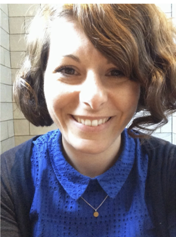 There are an estimated 6000 men, women, and children living in a disused refuge site in Northern France. A recent census revealed that there are around 423 unaccompanied minors among those living in a collection of tents and wooden structures. They are a small proportion of the estimated one million refugees who have entered Europe in 2015 and of the 16 million displaced across the Middle East through conflict, persecution, and/or hunger.
There are an estimated 6000 men, women, and children living in a disused refuge site in Northern France. A recent census revealed that there are around 423 unaccompanied minors among those living in a collection of tents and wooden structures. They are a small proportion of the estimated one million refugees who have entered Europe in 2015 and of the 16 million displaced across the Middle East through conflict, persecution, and/or hunger.
Over the past two weeks a prefecture-led eviction of the southern part of the camp was announced and challenged in court, but has still gone ahead. The eviction includes an area dominated by The Ashram Kitchen (serving over 1000 meals a day), two makeshift Mosques, a large area housing women and children, and our medical clinic. This eviction will lead to the mass displacement of around 3000 already vulnerable and cold individuals with the aim of relocating them into prefabricated containers (which have capacity for 800 to 1000 people). There has been no real consistency in how eviction information has been disseminated by the authorities, which has led to rumour, conjecture, and a huge swell of uncertainty and fear.
For several months I have volunteered for an organisation called the Hummingbird Project; a grassroots, solidarity movement, which started life as a soup kitchen.
We now provide first aid, triage, and medical advice in a purpose built clinic in the Calais “Jungle.” We are supported by a growing team of clinical and non-clinical staff and are able to provide medical support on a weekly basis. We have excellent links with the recognised humanitarian actors within the camp, which aids continuation of clinical care. Medically, we have witnessed viral illness, measles, injury associated with police brutality, pregnancy, post-traumatic stress disorder, depression with suicidal ideation, cutaneous leishmaniasis, and scabies to name but a few. Typically, we see around 100 people each weekend and attempt to refer them to appropriate services, provide simple first aid, safeguard, witness, document typical presentations and type of injury, or take the patient to hospital for emergency care.
Thus far the grassroots movement has been astounding. Individuals, groups of friends and colleagues, and small organisations have filled a vacuum of basic need where governments and the EU have failed. Their failure is catastrophic at several levels, including reception into the EU and access to essential services. When I was last in Calais, there were countless volunteers helping to relocate residents into the northern part of the camp to avoid destruction of the wooden structures, which house refugees as well as act as medical facilities, youth centres, and communal spaces.
In Calais there have been volunteers present from the outset to provide some element of humanity to an inhumane standard of living. There has been clothing tirelessly sorted and distributed by volunteers; there has been theatre; there has been art; there has been tea, coffee, and haircuts: a drop in the ocean of what actually needs to be done. What is lacking is sanitation; safeguarding for the most vulnerable (for example, some women are too scared to leave their tents to use the toilets); antenatal care (women can access antenatal care at the local hospital, which is five miles from the camp along a busy road); and security (right wing groups are increasingly present and there have been documented assaults on camp residents).
From a medical perspective there is unmet need on an unimaginable scale. From mental to sexual health, there will be longstanding repercussions. The local hospital in Calais is set to replace the Médécins Sans Frontières field hospital in early March. It remains to be seen what level of medical care the camp residents will receive, although if the EU response is a useful measure upon which to make predictions, expectations are not high.
Charline Bradshaw is a junior doctor currently working in an A&E in Brighton, with a long personal interest in refugee and asylum seeker health and wellbeing. She has been going to Calais with the Hummingbird Project for several months, and now coordinates the medical rota as well as providing frontline first aid in the clinic.
Competing interests: None declared.
